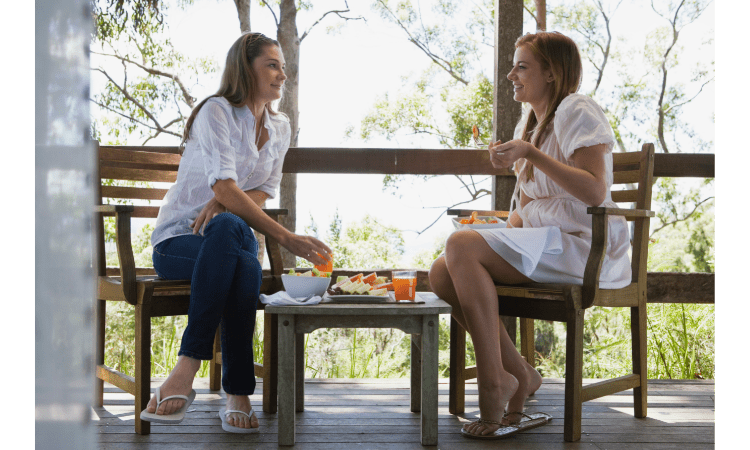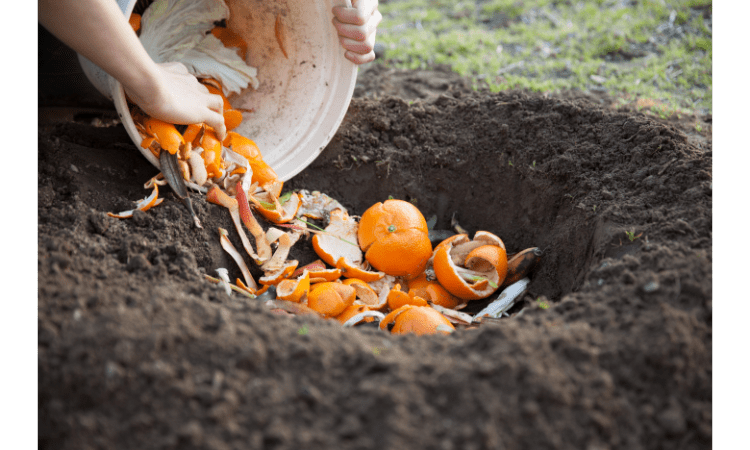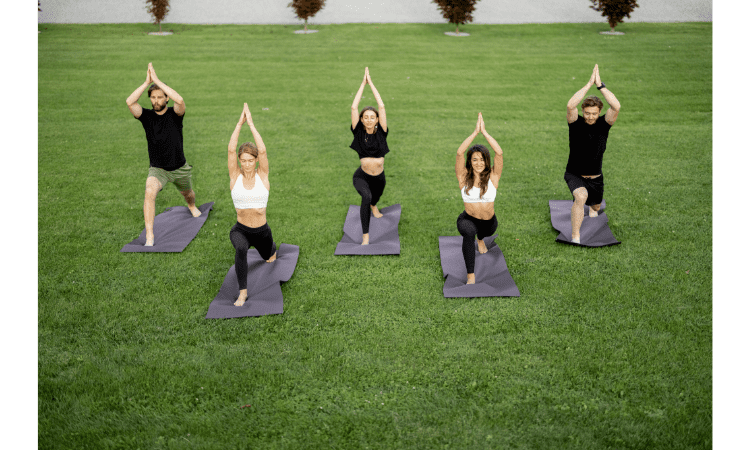
dgHumans have an innate connection with nature. Some of us are more intuitive than others, but we all share a common bond through the air, water and soil that surround us. We’ve lost touch with this important part of ourselves over time, but it’s never too late to reconnect with our roots by spending time in natural environments, eating plants instead of animal products and doing yoga outdoors—just to name a few ways! That is why we will discuss here how to connect with nature for mental health.
Connecting with Nature Benefits
Nature is the perfect place for reflection and meditation, and it can have a positive impact on your mental health. Here are some of the ways you can benefit from spending time in nature:
-Reduces stress and anxiety
-Enhances creativity
-Boosts self-esteem and confidence
-Improves mood and reduces depression symptoms
One of the famous connect with nature quotes

1. Spend time in natural environments.

Spending time in natural environments can improve your mood, help you feel more connected to the Earth and your community, and even boost your physical health. So, it is one of the best ways to connect with nature.
Researchers have found that spending time in nature can improve our mental health by reducing stress and anxiety. This is because of the way it affects our brain chemistry; exposure to green spaces releases more dopamine, which makes us feel happier about life (and look at things more positively) than if we were indoors all day long. Other studies have shown that being exposed to nature helps with attention deficits caused by depression or ADHD, making it easier for people who can’t focus on anything else but their own thoughts during most days (like me!).
Healing takes place when we interact with other people in meaningful ways—but we also need connections with ourselves as well as those around us! Spending time outside connects us back up with what we need most: each other but also ourselves too–because when one’s alone sometimes they forget how much they actually love themselves! Remaining attached with natural environment means connecting with nature spirituality.
2. Eat more plants and less animal products.

Another way to be close to the nature is by eating more whole foods, especially fruits and vegetables. Try to eat a rainbow of colors—reds, oranges, yellows, greens and blues. Make your plate look like a painting!
Try to eat more whole grains like quinoa or brown rice instead of processed grains like white flour pasta or white bread. Nuts and seeds are another great snack option that can be added to salads or smoothies. Legumes (beans) are also a good source of protein for vegetarians who do not consume meat products at all times. Soy products such as tofu are also great sources of protein for those who do not consume meat products at all times but still have the need for sufficient amounts of protein in their diet.
Fish is another excellent food choice for those who do not consume meat products at all times but still have the need for sufficient amounts of protein in their diet because fish is rich in essential nutrients like omega 3 fatty acids which help maintain healthy brain function throughout life as well as reduce inflammation levels that may increase risk factors associated with many diseases such as heart disease and cancer; however consuming too much fish could lead an individual towards mercury poisoning so it’s best if you limit yourself only once per week.
3. Make time to spend in your yard or garden

One easy way to connect with nature is by spending some time in your yard or garden. It doesn’t have to be a big commitment—you can just spend five minutes walking around your garden and appreciating the little things you’ve planted there. Or, if you have a larger yard, try sitting on your porch swing with a good book (or even an ebook!).
It’s also important to make sure that you’re getting enough sunlight every day! Sunshine has been shown to help with mood disorders like depression and seasonal affective disorder (SAD). If you don’t get much natural light at home, consider going outside during lunchtime or after work when the sun is still out.
4. Start composting

Composting is a great way to get your hands dirty and get connected with nature. It’s also easy, fun, attractive, accessible and a habit that can be easily incorporated into any lifestyle.
Composting simply refers to using waste as fertilizer for plants or soil. In fact, composting is such a useful practice that it should be considered essential!
What happens when you compost? You take your kitchen scraps (fruit peels and cores) along with lawn clippings (grass cuttings) or other yard waste; add them to an enclosed bin; add water periodically throughout the process; and wait several weeks until they have decomposed into dark brown soil-like material known as humus. This humus can then be added directly onto the garden beds or used in other ways around the house.
5. Reconnect with the Earth through gardening– get in touch with nature

You can easily reconnect with nature through gardening. Gardening is a great way to get active, reduce stress and enjoy fresh food from the garden. Gardening also gives you an opportunity to spend quality time with your family and make new friends who share similar interests.
If you’re feeling stressed out or looking for something new to do this spring, consider planting a vegetable garden!
You will need:
- A space in your yard or garden that gets 6 hours of sunlight a day.
- Well-drained, loose soil with good drainage and soil fertility.
To plant your garden in the spring:
- Get your soil tested by a local university extension office or agricultural college to find out what nutrients are lacking in your current soil and what you can add to make it more fertile. You may also want to consider adding compost and/or manure over time as well.
- Before planting any seeds or seedlings, loosen up the top layer of mulch (about 3 inches deep) so that it is loose enough for water to penetrate easily into the ground below without becoming too wet or muddy.
- For best results when growing plants from seeds rather than seedlings, use self-watering containers like . These allow you to set up your own irrigation system without worrying about overwatering because they have built-in moisture sensors!
6. Meet your local farmer.

- Meet your local farmer. Its a great inspirational source to connect with nature.
- Talk to them about growing food, and ask them what they are growing.
- Ask them about their farming practices, what they do in the field, why they do it that way, and how it impacts the taste of their crops.
- Ask them about their farming philosophy (in general), and how it affects their daily routine on the farm.
- Ask about any challenges they’ve faced in their career as farmers and how they overcame them.
- Lastly, find out which foods were most successful for the season just past so you can grow something similar next year!
7. Get your body moving by hiking or running outside.

Hiking is a great way to get your body moving and enjoy the benefits of nature. When you’re hiking, you can connect with yourself and nature by listening to the sounds around you, observing wildlife, smelling the fresh air and feeling your heart beat faster as you go up hills. Hiking also burns calories, improves circulation and strengthens muscles because it’s an aerobic activity that requires continuous movement for at least 10 minutes at a time. It also helps prevent heart disease by reducing stress levels through physical activity.
The benefits of running include cardiovascular health, weight loss and increased energy levels.[1] Running is another form of cardio workout that builds endurance while improving coordination.[2] This type of exercise reduces stress on joints so it may be easier for those who suffer from arthritis or joint pain.[3] A study published in June 2016 found that people who participated in regular high-intensity interval training sessions had lower resting blood pressure than those who didn’t do this type of exercise.[4][5]
8. Practice yoga outdoors.

Yoga is a great way to relax and connect with nature. If you’re practicing yoga outdoors, you’ll feel more connected to the world around you.
You can practice yoga in a park or garden near where you live, or even in your own yard!
9. Spending time outside and with plants can help you feel happier and healthier.

Spending time outside and with plants can help you feel happier and healthier.
Nature can give us a break from the stressors of everyday life, so we can relax and recharge. Studies have shown that spending time in nature helps reduce stress levels and anxiety in both adults and children. It also leads to more positive moods, which can improve sleep quality as well as overall health.
Additionally, being surrounded by nature may also make us more physically active than people who don’t spend much time outdoors. Researchers believe this is because humans are naturally drawn to natural settings like forests or parks where we feel comfortable exercising in our environment — even if it means going on a hike through these areas rather than just sitting at home watching TV all day long!
10. Ask Good Questions About Nature
- The natural world is a complex, beautiful, and mysterious place. Its complexity can make it difficult to understand, but there are ways to get closer to the natural world through careful observation and thoughtful questioning.
- Asking questions about nature can help you uncover the many wonders of our planet and universe. You might wonder: What makes up Earth’s atmosphere? Why do stars appear yellow instead of blue? How did humans evolve from apes? Your curiosity is what drives you forward and keeps you exploring the unknowns that surround us all!
Conclusion- connect with nature always
As we’ve seen, there are many ways to connect with nature. You don’t have to do everything on this list, but try to find something that works for you and practice it regularly so it becomes a habit. The more you connect with the Earth and its rhythms, the better off you’ll be—not only physically but also emotionally! So get out there and reconnect with your weather: they’re waiting for you.
Also Read – Sun Protection Tips and Myths.











